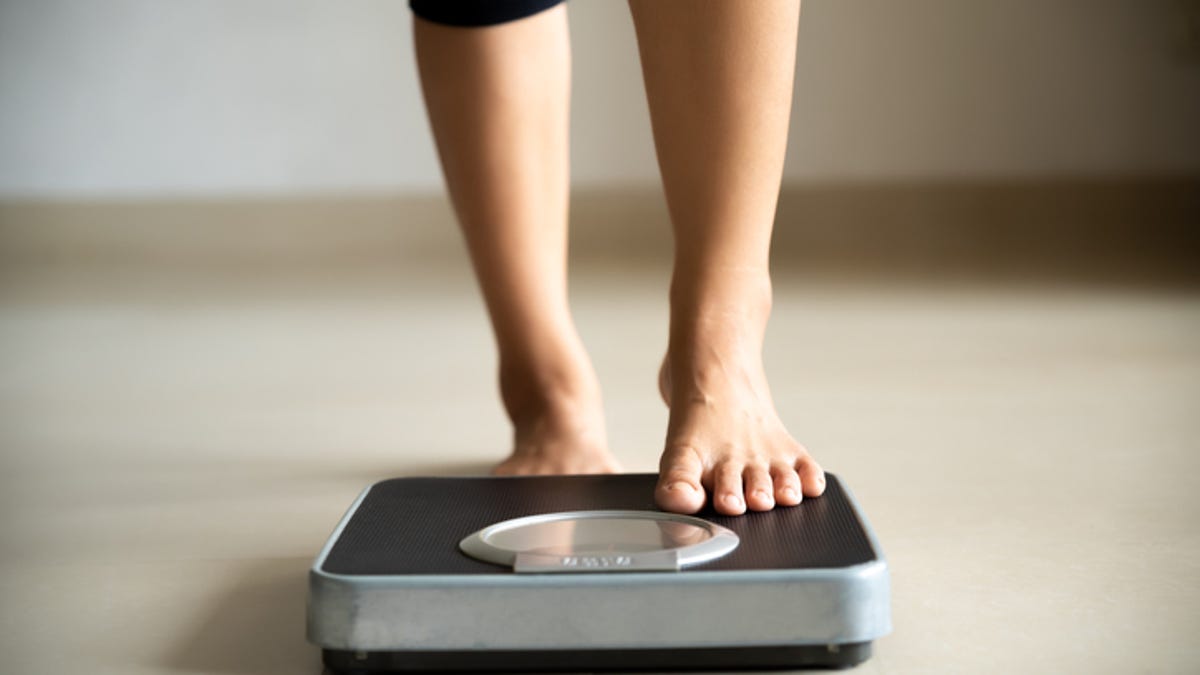 Why You Can Trust CNET
Why You Can Trust CNET When's the Best Time to Weigh Yourself to Get the Most Accurate Results?
If you're tracking your weight, here's the best time to step on the scale.

Standing barefoot on a flat surface is the best way to get an accurate result.
If you're resolving to lose a few pounds in the new year, you're not alone: A recent Forbes survey found losing weight to be the fourth most popular New Year's resolution. A reliable scale that provides accurate measurements is an important tool for those efforts, but much can depend on how (and when) you use it.
First, remember that the number presented by your scale isn't an "end-all, be-all" measurement of your health. If you have a healthy relationship with weighing yourself, the number can be a tool that gives you valuable insight into your progress toward your overall health target.
With that in mind, there is a specific time of day when you're likely to see the most accurate results after you step on the scale. Continue reading for the best time of day to weigh yourself, more tips to consider during weight checks and when it might be beneficial to skip the scale.
In search of more health-related tips? Read up on how to incorporate more fruits and veggies into your diet and why you should eat more carbs, not fewer.
Read more: Expert Tips to Lose Body Fat
Weigh yourself at this time
You'll get the most accurate reading from your scale if you weigh yourself first thing in the morning. Do it after using the restroom and before eating breakfast or chugging any water.
According to experts, morning is the best time because you've given your body the chance to properly digest everything you ate and drank the previous day, leaving your stomach relatively empty.
More tips on getting an accurate reading
Besides weighing yourself at an ideal time of day, there are more ways to ensure you regularly get an accurate reading from your scale, which is especially important when tracking weight loss or gain.
- Weigh yourself once a week at the same time of day.
- Keep your scale on a solid, flat surface.
- Stand barefoot on your scale, keeping your weight distributed evenly between both feet.
- Wear little to no clothing when you weigh yourself. Whatever you decide, keep it consistent each time you weigh yourself for better accuracy.
When to break up with your scale
Like any unhealthy relationship, you can walk away from weighing yourself if you think it's having a negative impact on your life. Don't hesitate to ditch your scale if you're experiencing:
- Negative thoughts triggered by weighing yourself
- Unsafe or unhealthy habits triggered by weighing yourself
- Regular anxiety or sadness after weighing yourself
- An eating disorder, whether you're developing one, recovering from one or previously had one
Read more: Your Weight Isn't Everything: 6 Health Metrics That Are More Important
Fitness Guides
Fitness Equipment
Fitness Accessories
Fitness Tech
Fitness Nutrition

